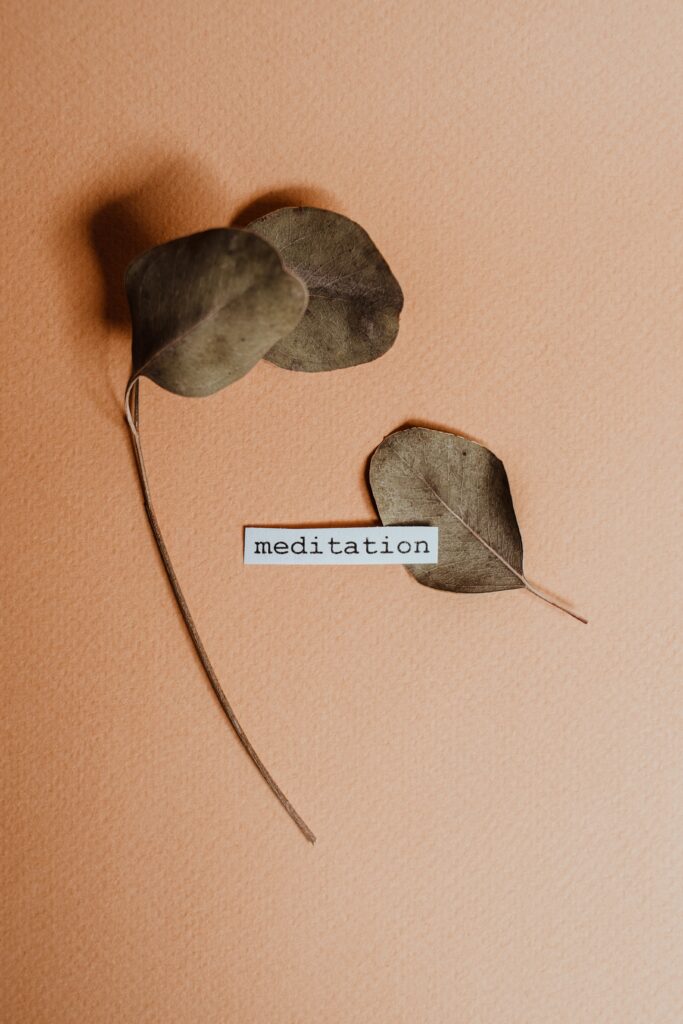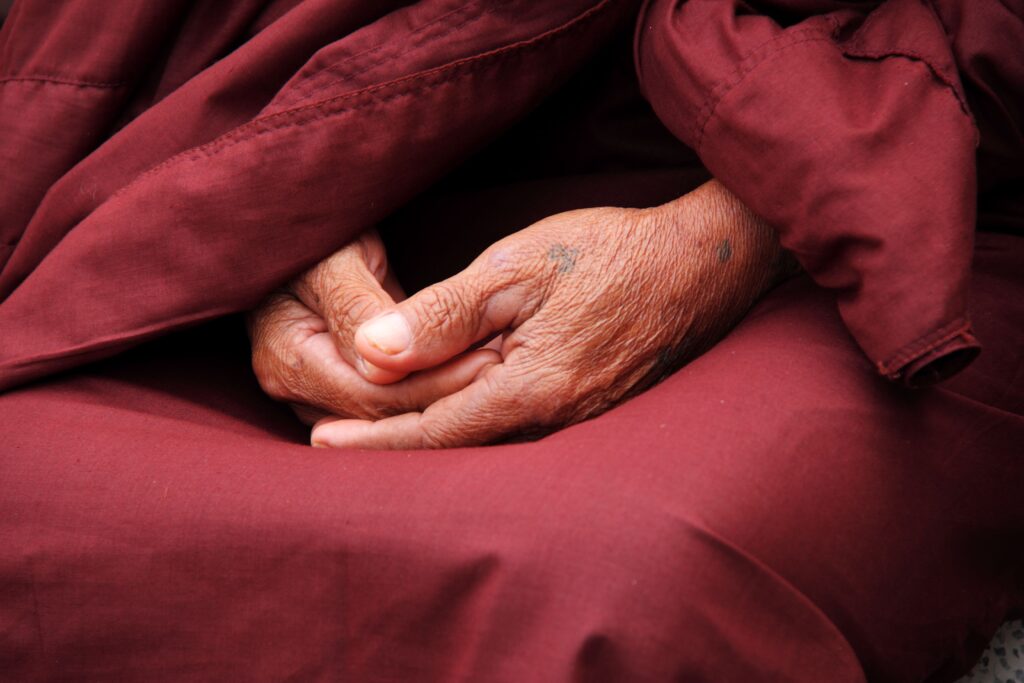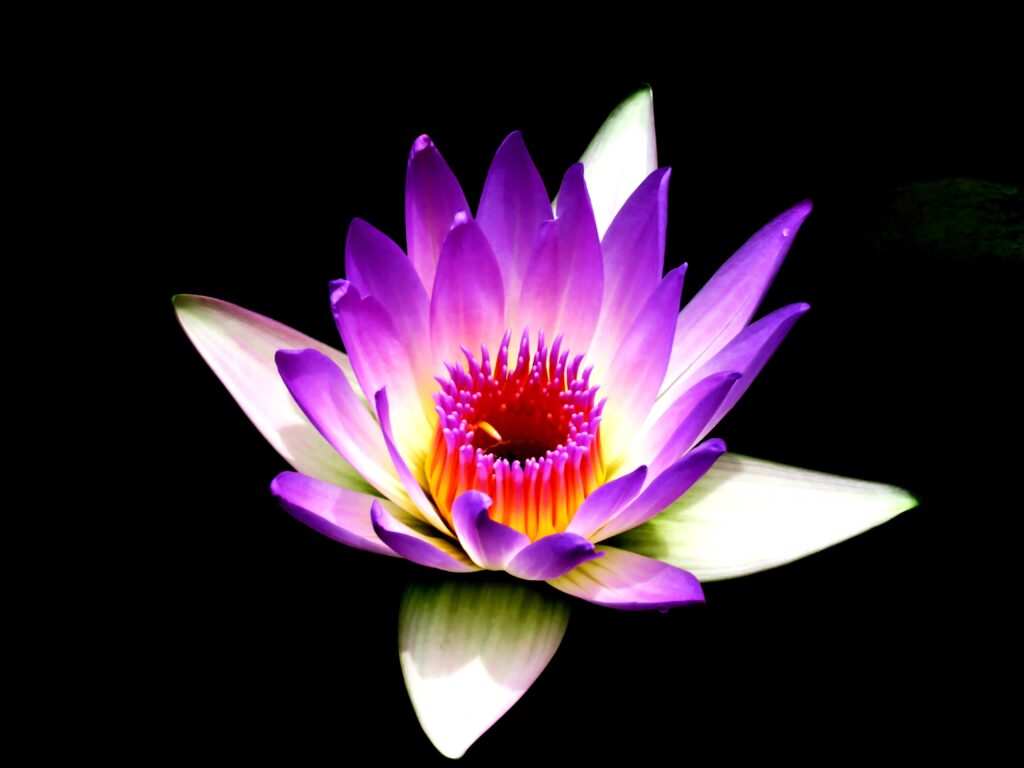Meditation?

Meditation; simply put, is mindfulness. One might argue that mindfulness is a form of meditation. They would be right. It is also true that it is one and the same. Meditation is a heightened state of awareness which leads to focused attention. I invite you to study the literal meaning of the word in your first language. It’ll give you better perspective of what is the process is about. What it is that meditation is trying to achieve.
First off...
As we all know, language shapes us. Language literally changes, subtly changes us according to which language we think. For something as intimate as spirituality, it’s helpful to understand the meaning in the most intimate medium of communication. Meaning, use text and media in your first language. If this exercise doesn’t serve you, then you can move on to study material in other languages. The easiest being English, as there are so many materials on meditation in English online.
Meditation has gained much hype during past decades. And this trend keeps gathering momentum. Especially in the height of the pandemic when metal health issues were rife. However, it’s good to remember, that it is an ancient practice. And there’s many material out there already, ready to be used.
Maybe it’s never been more relevant than now. For general wellbeing we need it now more than ever. You’ll find practice of meditation had been part of many cultures, religions and spiritual traditions across the world. Though it had been around for millennia, practice and knowledge existed mainly amongst the clergy or serious practitioners. It’s good to get to know about the history. But not essential.
The 'why'
Let’s get something out of the way first. Meditation is not about becoming a better person. Or even a new person. It’s about becoming more aware of your thoughts and who you are. It’s about observing what’s passing through your mind without judgement. Someday you might be able to better understand them. The thoughts and you. You never know.
So, why would someone want to do this, if it’s not going to make you a new person? What would you gain for your troubles? Think of it as another technique you are using for your health and wellbeing. Let’s look at some compelling arguments how you can use the practice of meditation for your benefit;
Meditation for wellbeing
- Lowers your stress.
- Manage insomnia, high blood pressure, anxiety disorder and depression
- Helps with attention and awareness
- Reduce mind chatter
- To help focus your mental energy productively
- Improved overall emotional wellbeing
- Helps with memory
- Manages psychosomatic pain
- Increased self-awareness and empathy to self and others
one of the main conundrums of our times is our tendency to compare and judge. And we are notoriously guilty of doing it to ourselves. This is not easy to escape in this era of everything social media. Social media had become a part of our lives. And a lot of us don’t have the fortitude to live without it. Or in other cases, we do not understand the impact it has on us. Ironically, this is due to lack of self-awareness. Our constant need for validation is gratified by social media. While it’s fueling the need for validation and acceptance. It’s double-edged sword. You’d think it’s easier to start with deleting the SM apps than starting this whole new and daunting practice of meditation. In actuality it may be easier to start a practice of meditation than deleting the social media apps, goingby how hooked we are to them. I’d start with the easier one.
Social media isn’t the only thing driving up anxiety for the modern human though. It would have been much easier to handle had that been the case. But no, there’s the more serious issues of high stress jobs, many engagements to show up to and living in the cities. Hence it had become a housekeeping requirement to have a mental wellbeing practice. A hygiene factor. Like a streaming subscription 😉
It’s vital to have meditation in your wellbeing arsenal. It is definitely not only for those who are seeking a spiritual path.
The 'how'
You might say that I’m putting meditation on a pedestal. I absolutely am. Let me explain why. Why, you need to look at meditation more seriously. As your ultimate wellbeing hack. It all starts with slowing down. Taking a break to just sit there. And maybe watching the breath. If you can. When you sit down with the intention to watch the breath, you’ll see all the thoughts sneaking in and not allowing you to observe the breath. Your meditation guide, teacher or the book would advice you to observe those intruding thoughts. This is in fact, how the self-awareness begins.

It’ll happen without you even noticing you are making a great effort to untangle the thoughts. You don’t need to untangle the thoughts. That’s a job your therapist is going to help you with. In meditation, you’ll see your thoughts for what they are. Thoughts. One day you’ll empathize with yourself and know that what a disservice you did to your self by judging yourself mercilessly.
How to start meditation
- Allocate a time. Do you respond to the alarm well? Then go ahead and use the alarm. If not sneak in few minutes of meditation for an existing routine you have. Do you read before sleep? Schedule your meditation time just before your reading time. That way you still have something you look forward to at the end of those few minutes. I think this is rather clever.
- Manage the surrounding. Remove distractions. Turn off the phone, TV or set it on mute. I always felt clean, and clean smelling surrounding helps. Tell your family or friends you need some silence.
- Set a time limit. This helps with giving a clear message to the brain that you are going to be on this for the next 10-15 minutes. Coming to an agreement with your mind like this, helps. And keep coming back to it when your mind wonders during this period.
- Take a few deliberate breaths and see how you see it on the tip of your nose.
- Then let the breathing fall to its natural flow and observe it. After this point try not to get involved. Your job is to watch it. Not manipulate your breathing.
- If you notice that this is easier said than done. That’s completely ok. Just gently and kindly keep coming back to the breath. If the thoughts continue to happen try not to fight it and observe the thought. Without judgement. Important thing is to not to run with the subject of the thought. Watch the thoughts as it occurs and let them pass. Then come back to your breath.
If you start noticing aches and pains in the body while trying to meditate, then there’s few things you can do. If it’s bearable observe it. Again, just observe it. You are not trying to will away the pain. Just observe it until it passes. More often than not it passes and it increases you body awareness. If it’s unbearable, then you know you need to make your body more malleable and meditation ready by asana practice. And if you are not into that, think of other means of exercise that you enjoy and incorporate it to you daily regime.
Meditation is a skill
Meditation like all the good things, can be learnt, practiced, and honed. Think of it like any other exercise. It’s like learning any other skill. Think of it like something that you are learning for the first time. a muscle that you haven’t worked before. For some of you it very well could be the first time. but approach it like the first time every day. It is the key, when you sit; sit with a beginner’s mind. That way you don’t have expectations on yourself. Nor you have judgement.
Constant practice and discipline of getting back to it diligently will make you more comfortable and confident in it. IT IS a skill you can hone.
Don'ts
Lose the expectations
If you are after a perfect meditation practice, you are setting yourself against the Everest. Do yourself a favor and lose the expectations. You can actually approach this as a molehill. You are not going to sit down to meditate on the first day and come out all light and fluffy the next day. But at the same time, if you think it’s going to be easy, IT IS going to be easy. Just have small, consistent efforts.

If you are going to sit down and achieve perfection in meditation, you don’t need meditation in life. We meditate because we need it. meditation is not the goal. It’s the tool. It’s how we are going to get there. Choose kindness. Choose to be kind to yourself. You are going to need a lot of it in meditation. Begin and end the practice with kindness to yourself. And it can’t go wrong.

